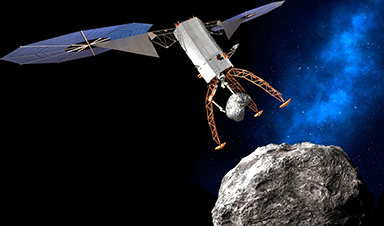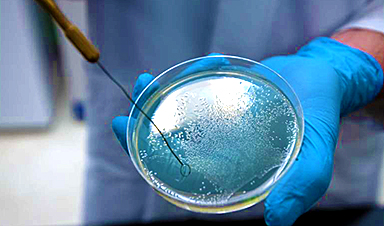In 2015 Congress passed a law to legalise mining in outer space—the first of its kind in the world.
Firms that some day manage to mine asteroids for resources like water or precious metals would henceforth be allowed to own, process, and sell anything harvested. The nascent space-mining industry was thrilled. The boss of a firm called Planetary Resources compared it to the Homestead Act of 1862—a law that gave up to 160 acres in the American West to any plucky settler willing to venture forth.
More recently Wilbur Ross, the commerce secretary, has talked about creating a more “permissive” regulatory environment in space and turning the moon into a “gas station” for further exploration. Other countries are following suit: Luxembourg passed a similar measure last year and earmarked €200m to invest in space-mining companies.
But not everyone is pleased. At the UN committee dealing with outer space, Russia condemned the American move, citing America’s “total disrespect” for international law. Critics say America is conferring rights that it has no authority to confer. There are indeed legal grey areas.
Who owns what in outer space?
Image Credit: © SPL
News This Week
Signs of Multiple Sclerosis Show Up in Blood Years Before Symptoms Appear
UCSF scientists clear a potential path toward earlier treatment for a disease that affects nearly 1,000,000 people in the United States. By Levi Gadye In a discovery that could hasten treatment for patients with multiple [...]
Advanced RNA Sequencing Reveals the Drivers of New COVID Variants
A study reveals that a new sequencing technique, tARC-seq, can accurately track mutations in SARS-CoV-2, providing insights into the rapid evolution and variant development of the virus. The SARS-CoV-2 virus that causes COVID has the unsettling [...]
No More Endless Boosters? Scientists Develop One-for-All Virus Vaccine
End of the line for endless boosters? Researchers at UC Riverside have developed a new vaccine approach using RNA that is effective against any strain of a virus and can be used safely even by babies or the immunocompromised. Every [...]
How Are Hydrogels Shaping the Future of Biomedicine?
Hydrogels have gained widespread recognition and utilization in biomedical engineering, with their applications dating back to the 1960s when they were first used in contact lens production. Hydrogels are distinguished from other biomaterials in [...]
Nanovials method for immune cell screening uncovers receptors that target prostate cancer
A recent UCLA study demonstrates a new process for screening T cells, part of the body's natural defenses, for characteristics vital to the success of cell-based treatments. The method filters T cells based on [...]
New Research Reveals That Your Sense of Smell May Be Smarter Than You Think
A new study published in the Journal of Neuroscience indicates that the sense of smell is significantly influenced by cues from other senses, whereas the senses of sight and hearing are much less affected. A popular [...]
Deadly bacteria show thirst for human blood: the phenomenon of bacterial vampirism
Some of the world's deadliest bacteria seek out and feed on human blood, a newly-discovered phenomenon researchers are calling "bacterial vampirism." A team led by Washington State University researchers has found the bacteria are [...]
Organ Architects: The Remarkable Cells Shaping Our Development
Finding your way through the winding streets of certain cities can be a real challenge without a map. To orient ourselves, we rely on a variety of information, including digital maps on our phones, [...]















Leave A Comment